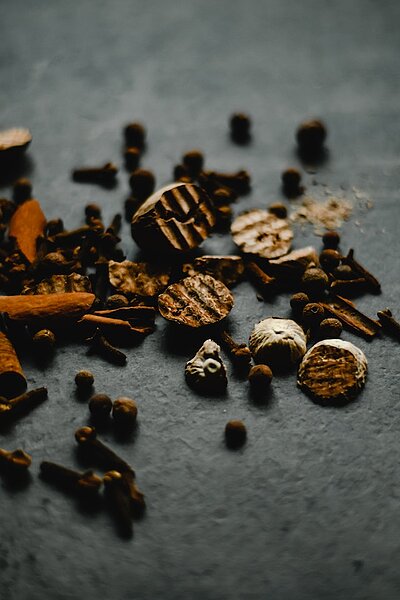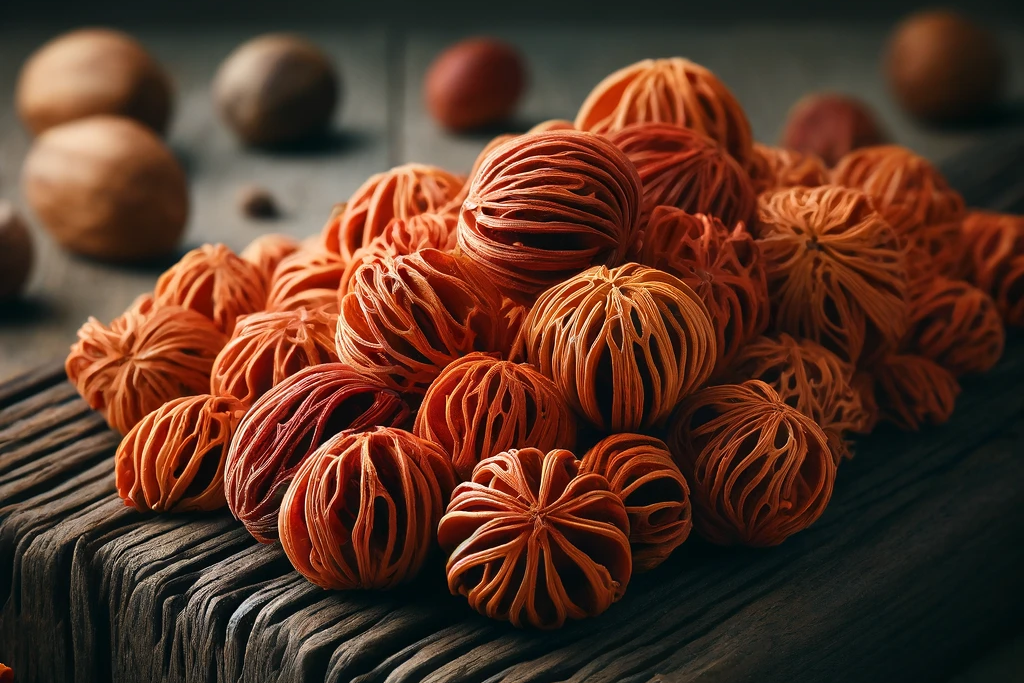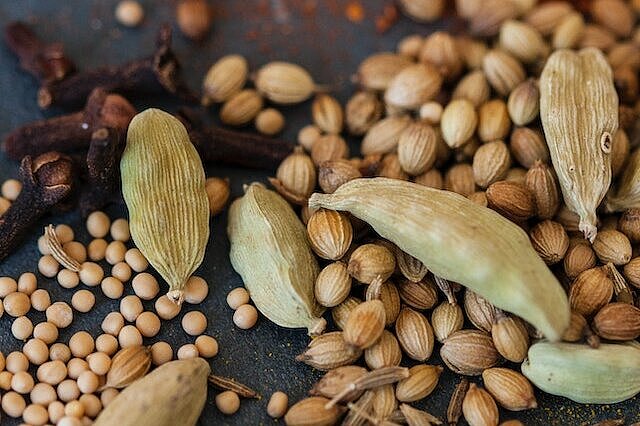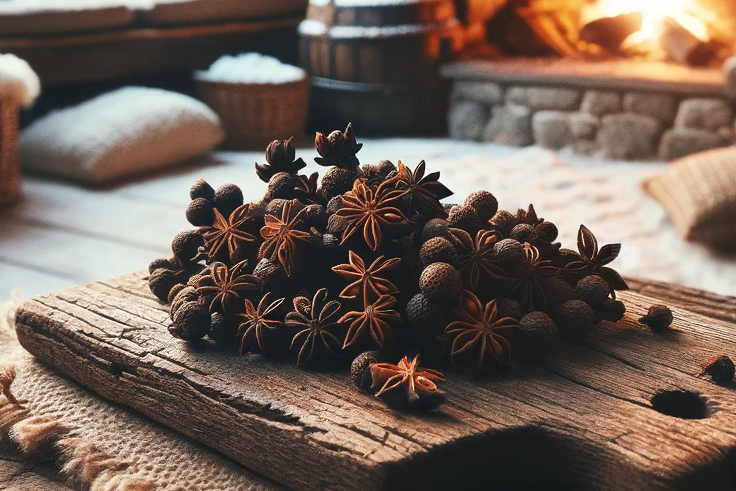Nutmeg

What is nutmeg?
Nutmeg is the seed of the nutmeg tree, which grows in tropical regions such as Indonesia and India. The seeds are dried and ground or grated into a spice. Nutmeg contains various ingredients that can be harmless or even healthy for humans, but are dangerous for dogs.
Why is nutmeg poisonous to dogs?
The main reason why nutmeg is poisonous to dogs is a substance called myristicin. This substance affects the nervous system and can cause hallucinations, convulsions or respiratory paralysis in dogs. Myristicin is also toxic to humans, but only in very high doses.
Another reason for the toxicity of nutmeg for dogs is its high fat content. This can lead to stomach upsets or pancreatitis in dogs.
How much nutmeg is dangerous for dogs?
There is no precise indication of how much nutmeg is dangerous for dogs. This depends on various factors such as the weight of the dog, its state of health or its individual sensitivity. In general, however, the less nutmeg a dog eats, the better.
Even a small amount of around five grams can cause symptoms of poisoning in a dog. This corresponds to about half a teaspoon of ground nutmeg or a quarter of a whole nut.
In larger quantities, the poisoning can even be fatal.
What are the symptoms of nutmeg poisoning in dogs?
The symptoms of nutmeg poisoning in dogs can vary depending on the severity. They usually occur within two to six hours of consumption and can last up to 48 hours. The most common symptoms are
- Nausea and vomiting
- abdominal pain
- hallucinations
- tremors
- convulsions
- disorientation
- Drowsiness
- Increased pulse
- Weakness
- Respiratory paralysis
If you suspect that your dog has eaten nutmeg and shows one or more of these symptoms, you should see a vet immediately. The sooner your dog is treated, the better his chances of survival.
How is nutmeg poisoning treated in dogs?
The treatment of nutmeg poisoning in dogs depends on the amount of the substance ingested and the condition of the dog. The vet will try to prevent further ingestion of myristicin by giving your dog an emetic or activated charcoal. They will also give your dog fluids and medication to relieve symptoms and boost vital functions.
How can I prevent nutmeg poisoning in my dog?
The best way to prevent nutmeg poisoning in your dog is to keep nutmeg and all foods containing nutmeg away from your dog. Keep the spice in a closed container that is inaccessible to your dog. Do not give your dog any foods that contain nutmeg, such as cakes , cookies or mashed potatoes. Also, make sure your dog doesn't have access to waste or compost where he could find nutmeg residue.
If you want to give your dog some spice, there are other spices that are safe for dogs. For example, you can give your dog some turmeric, cinnamon or ginger. These spices even have health benefits for dogs, as they aid digestion or relieve inflammation. However, you should always make sure that you only give small amounts and don't add any other ingredients that could be harmful to dogs.
Nutmeg is a tasty spice for humans, but a dangerous poison for dogs. Even small amounts can lead to severe poisoning or even death in dogs. You should therefore keep nutmeg away from your dog and not give him any food that contains nutmeg. If your dog has accidentally eaten nutmeg and shows signs of poisoning, you should consult a vet immediately. To give your dog some spice, you can use other spices that are safe for dogs instead.
Properties 4
Are you looking for other ingredients with a specific property?
Just click on them to find more.
If you notice any signs of hypersensitivity or poisoning in your dog, you should see your vet immediately. We are not a substitute for a vet, but we try to be as accurate as possible. Every dog reacts differently and we recommend you get a second opinion or consult your vet if in doubt.
Stay healthy and take good care of your four-legged friend!😊
Similar to Nutmeg
Mace is the spice obtained from the thin, bright red seed coat of the nutmeg fruit (Myristica fragrans). After harvesting, the seed coat dries to a yellowish color and is sold either whole or...
Cinnamon is the dried bark of various tree species from the laurel family. There are various types of cinnamon, which differ in taste, color and coumarin content. Coumarin is a natural flavoring...
Cardamom belongs to the ginger family and originally comes from South Asia. The plant has long, narrow leaves and small, yellow-green flowers. Elongated capsules containing the seeds develop from...
Cloves are the dried flower buds of the Syzygium aromaticum tree, which is native to parts of Asia and South America. Known for their intense fragrance and flavor, they are valued in the culinary...



